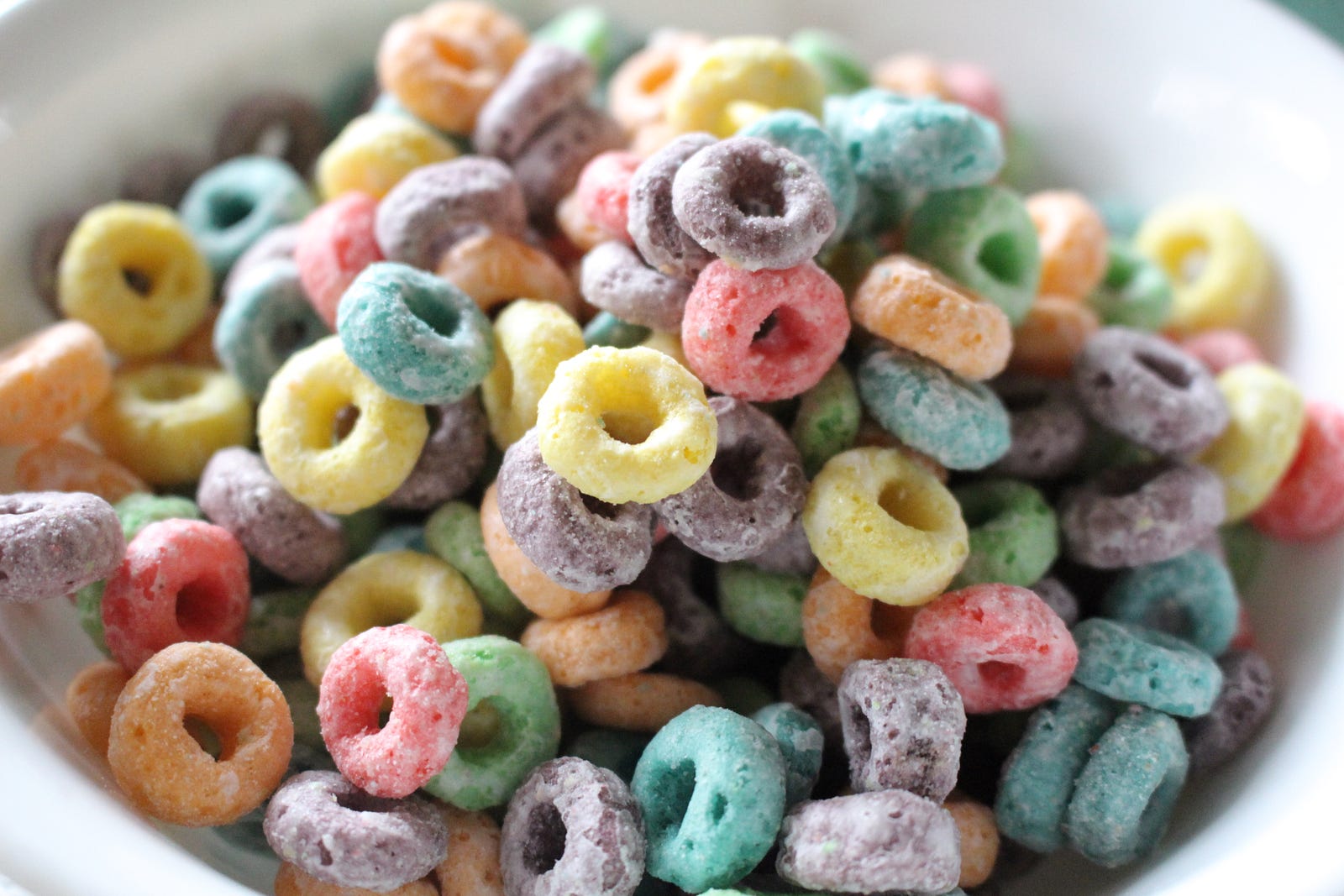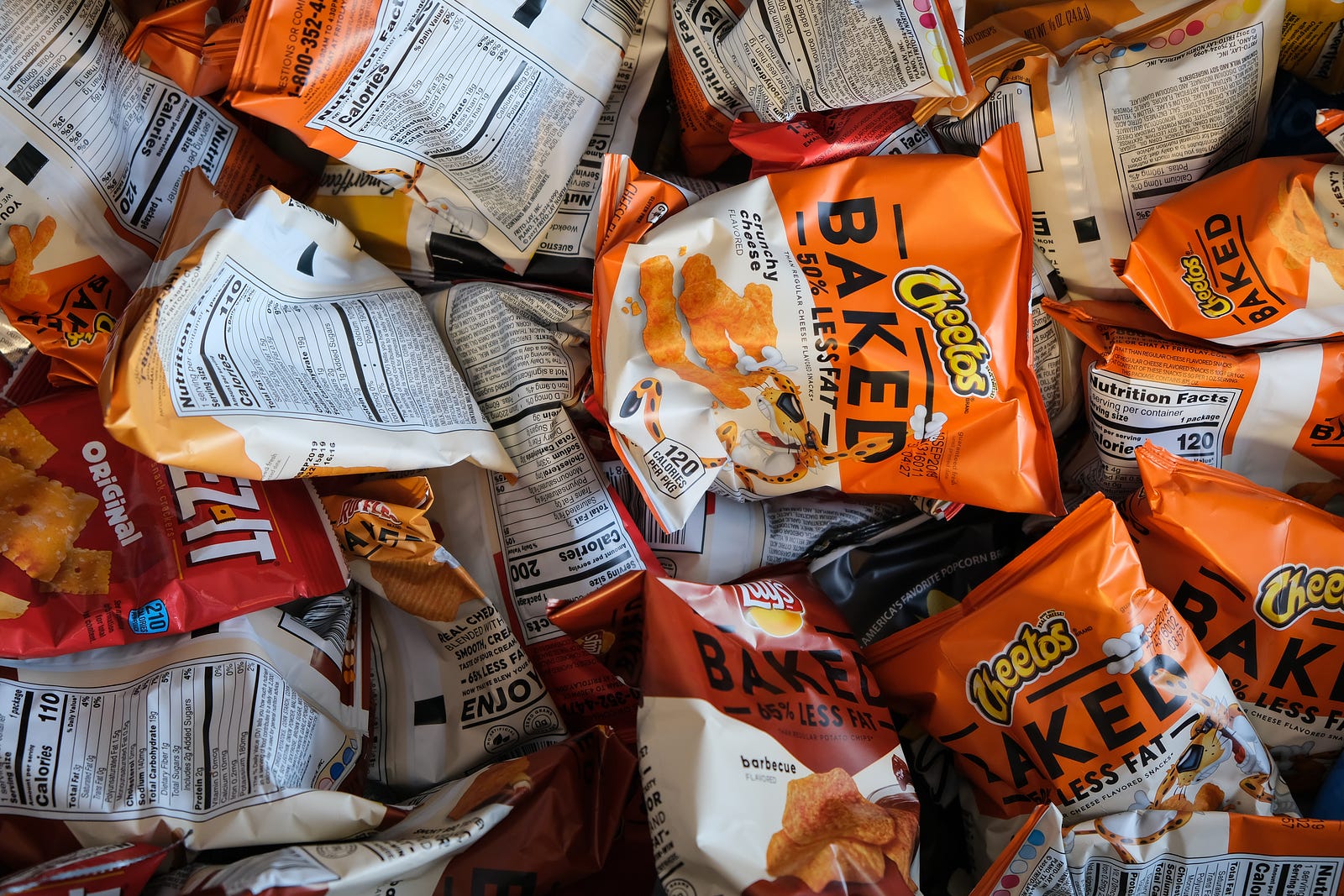Eating processed foods may make you fat because of three main reasons: processing destroys nutrients, processed foods are higher in calories, and processed foods are addictive.
Scientists, like Kevin Hall and his colleagues, at the National Institutes of Health recruited subjects to live in a research facility for four weeks and fed them two diets — a whole foods diet or an ultra-processed one, along with snacks of each variety — for two weeks each.
They were allowed to consume as much or as little as they wanted.
Many nutrition experts, like George Bray at the American Diabetes Association, have connected the rise in obesity to an increase in processed foods that are designed to have a long shelf life and to deliver irresistible combinations of salt, sugar, fat, and other additives.
Because these foods are loaded with refined carbohydrates, added sugars, and calories, experts say they are responsible for making people overeat.
However, these foods are usually low in fibre, protein, vitamins, and other important nutrients.
And, a new and rigorous study by the Journal of Cell Metabolism has provided strong evidence that these foods make people eat more, resulting in quick and significant weight gain and other unhealthy health effects.
Which Processed Foods Make You Gain Weight?
People eating a diet rich in ultra-processed foods like breakfast cereals, muffins, white bread, sugary yogurts, low-fat potato chips, canned foods, processed meats, fruit juices, and diet beverages gained more weight and ate more calories than those consuming mainly minimally processed foods according to a new study.
The whole food group primarily ate foods such as fresh fruits and vegetables, eggs, grilled chicken, fish, and beef, and whole grains, nuts, and seeds.
In addition, the study found that the processed foods caused a rise in hunger hormones compared to those who consumed minimally processed foods.
This shows that weight gain and health has more to do with the type of food you eat and the cravings that it causes compared to how much of it you eat.
And, the most interesting finding was that subjects on the ultra-processed diet consumed 500 extra calories per day — the equivalent of two and a half Krispy Kreme glazed doughnuts — resulting in an average weight gain of two pounds in two weeks.
Almost all of the additional calories they consumed came from carbs and fat.

What Did This Study Show?
Obesity expert Kevin Hall, of the National Institute of Diabetes and Digestive and Kidney Diseases, said he was surprised by the large weight and body fat changes that occurred as a result of consuming a large amount of calories in a short period of time (O’Connor).
This new research, is the first randomized controlled trial to compare the dietary effects of a ‘Western-like’ ultra-processed diet with an ‘ad libitum’ diet in young adults, according to the study.
Barry Popkin, an obesity and nutrition expert at the University of North Carolina at Chapel Hill, who was not involved in the research, described the findings as impressive and said that the weight gained on the processed diet in a short period of time was “profound” (O’Connor).
Dr. Popkin said that this is a critical study that poses a significant challenge to the global food industry and the food science profession (O’Connor).
Previous research, in addition to the new findings, raise questions about how much processed food people should consume.
Worldwide, multinational food companies are aggressively pushing ultra-processed foods, which make up over half of the calories consumed in the United States (O’Connor).
What Are Ultra-Processed Foods?
Ultra-processed foods can be defined in several ways, but they are typically packaged or quick foods that contain many ingredients, such as added sugars, refined carbohydrates, industrial oils, sodium, and synthetic flavours and preservatives.
Observational studies of thousands of people have demonstrated that eating large quantities of these foods is associated with an increased risk of early mortality from heart disease and cancer (O’Connor).
Who Eats the Most Ultra-Processed Food?
People with lower socioeconomic status consume the most ultra-processed foods since they’re cheaper and more convenient.

Ultra Processed Food and Disease
Smoking, exercising less, and engaging in other unhealthy behaviors are among the lifestyle factors that contribute to disease risk.
Because of this, large population studies are unable to separate the effects of ultra-processed foods from other lifestyle factors (O’Connor).
In order to address this issue, the researchers recruited 20 men and women with an average age of 31 and assigned them to consume both unprocessed and extremely processed foods.
Since subjects consumed exclusively foods prepared by the researchers for four weeks while staying at a research center, the sample size was limited to 20 subjects.
Every bite of food they consumed was meticulously measured and recorded, and their weight, body fat, hormones, and other indicators were carefully evaluated.
The researchers were concerned that the processed diet would not just consist of obvious junk foods.
As a result, they provided a variety of highly processed foods that an American might consume daily and consider healthy, like Cheerios, blueberry muffins, and orange juice for breakfast; cheese and turkey sandwiches with baked Lay’s potato chips and diet lemonade for lunch; and steak, canned corn, mashed potatoes from a box, and diet soda for dinner.
For snacks, low-fat chips, Pepperidge Farm Goldfish crackers, and other vending machine products were offered.
The scientists created two diets with the same quantities of calories, carbs, fat and sugar, but the subjects consumed more calories from the processed food meal because they were allowed to eat as much as they wanted, and they became more hungry.
The subjects on the whole food side got their fiber, sugar, and carbs from whole foods such as fresh produce, beans, oatmeal, sweet potatoes, grains, and other similar foods.
On the processed diet, bread, bagels, juices, tater tots, sauces, chips, pasta, French fries, and canned foods provided mostly refined carbohydrates and sugars.
Because those foods are typically low in fiber, the supplements were provided on the processed diet.
Subjects ate a lot more calories on the processed diet and, not surprisingly, gained weight.
This same conclusion was found with a separate study that looked at fast food consumption and weight gain in young children.
Why Does Processed Food Make You Fat?
Processed food leads to weight gain because processed foods are engineered to be cravable so people buy more of them. In addition to that, processed foods are usually high in carbohydrates and added sugars. So, even if you eat a lot of processed food, your hunger hormones stay the same so you are still hungry.
Because of this, Dr. Hall and his team are preparing additional research to understand why ultra-processed foods had this effect.
According to him, whether a diet is low-carb, plant-based, vegan, Paleo, or high-protein, many people who follow them often eliminiate ultra-processed foods.
However, Dr. Hall warns against demonizing processed foods, because many Americans rely on them: Ultra-processed foods are cheap, convenient, and long-lasting. The unprocessed diet used in the study, for example, was 40% more expensive than the ultra-processed diet.
According to Schlinger, people who struggle to afford fresh produce or make meals from scratch are particularly susceptible to frozen pizza’s allure.
But, as we see from these findings, it is best to limit processed foods for good health.
And, many health professionals, like Hussein Dashti and his colleagues, found that a low-carbohydrate diet, like the keto diet, can be very beneficial for reversing sugar addiction, insulin resistance, and obesity.
Works Cited
Avena, Nicole, et al. “Evidence for sugar addiction: Behavioral and neurochemical effects of intermittent, excessive sugar intake.” Neuroscience and biobehavioral reviews, vol. 32, no. 1, 2007, p. 20,https://doi.org/10.1016/j.neubiorev.2007.04.019.
This study looks at the correlation between sugar and addictive behaviors of sugar consumption. I see this source as credible because it is fairly recent, being written in 2007. And, this publication cites many outside sources when it makes a claim, so I’m more inclined to trust it. I used this source to help show that addiction and habits make a big part of an unhealthy lifestyle.
Bray, George, and Popkin, Barry. “Dietary Sugar and Body Weight: Have We Reached a Crisis in the Epidemic of Obesity and Diabetes?: Health Be Damned! Pour on the Sugar.” Diabetes Care, vol. 37, no. 4, 2014, pp. 950–956,https://doi.org/10.2337/dc13-2085.
This study looks at the correlation between sugar and the weight gain epidemic. I see this source as credible because it is recent, being written in 2014. And, this publication cites many outside sources when it makes a claim, so it is more believable. I used this source to help show how much fast food addictions have grown, and thus the resulting obesity related issues caused by them.
Dashti, Hussein, et al. “Long-term effects of a ketogenic diet in obese patients.” Experimental & Clinical Cardiology, vol. 9, no. 3, 2004, pp. 200–205, https://doi.org/https://www.ncbi.nlm.nih.gov/pmc/articles/PMC2716748/.
This study looks at the long-term effects of a low-carb diet on obese patients and how it can reverse insulin resistance, sugar addiction, and weight gain. I see this source as credible because it is not too old, being written in 2004. And, this publication cites many outside sources when it makes a claim, so it is more trustable. I used this source to help show the readers the relationship between low-carb diets and a healthy lifestyle.
Emond, Jennifer, et al. “Fast food intake and excess weight gain over a 1-year period among preschool-age children.” Pediatric obesity, vol. 15, no. 4, 2020, p. e12602, https://doi.org/10.1111/ijpo.12602.
This source looks at the relation between fast food intake and weight gain over a 1-year period in children. This source is credible because it is very recent, being written in 2020. In addition to that, since there is so much original, helpful information in this article, it is very insightful on the reasoning behind fast food intake and excess weight gain. I used this source to show the statistics behind weight gain and fast food consumption.
Hall, Kevin, et al. “Ultra-Processed Diets Cause Excess Calorie Intake and Weight Gain: An Inpatient Randomized Controlled Trial of Ad Libitum Food Intake.” Clinical and Translational Report, vol. 30, no. 1, 2019, pp. 66–77,https://www.cell.com/cell-metabolism/fulltext/S1550-4131(19)30248-7.
This source looks at the correlation between processed foods and weight gain. I believe that this source is credible because they did a randomized control study where they eliminated all other lifestyle factors other than food consumption. In addition to that, since this study was made in 2019, it is very recent and up to date with the new findings in the field. I used this source to show the readers about the statistical correlation that processed food consumption has with weight gain.
O’Connor, Anahad. “Why Eating Processed Foods Might Make You Fat.” The New York Times, 16 May 2019https://www.nytimes.com/2019/05/16/well/eat/why-eating-processed-foods-might-make-you-fat.html. Accessed 7 Oct. 2022.
This article by The New York Times analyzes the effects of processed food consumption and weight gain. This source seems credible because it is recent being written in 2019. In addition, the author cites the study he mentions whenever he makes his claim. I used this article to help support the correlation between carbohydrates, fast food, sugar, and weight gain.
- Can You Still Lose Weight If You Aren’t in Ketosis? - February 8, 2023
- Can the Keto Diet Help With Depression? - February 8, 2023
- Why Does Processed Food Make You Fat? - January 2, 2023




